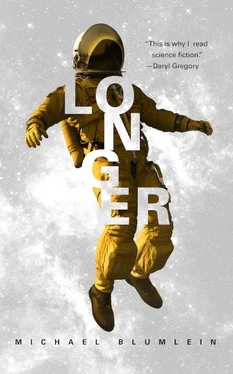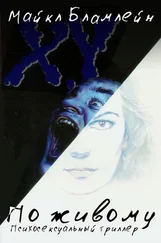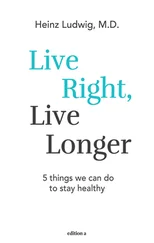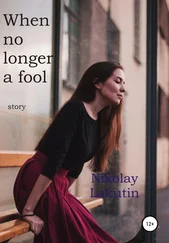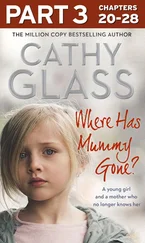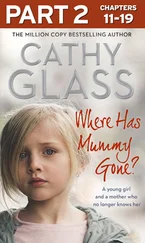She made a fist of her hand. Opened it, closed it. Hardened her abs, and ran her fingers down the ladder.
There wasn’t much of one. The runs were soft and ill-defined. She’d never had the inclination or the time to make them otherwise. Now she thought, why not? Nothing wrong with definition. Might be nice for a change.
She could take one of the shuttles and escape. Become a gym rat instead of a lab rat, or in addition. Widen the scope of her life. Embrace the physical. Add muscle strength and flexibility to what she already mentally possessed.
She could be an athlete.
A dancer.
A reforester. A firefighter. Plenty of work on Earth for both of those.
A cop.
A tunneler. The trans-Pac tube was always looking for muscle and brawn.
Her father had practiced yoga. She could do that, but seriously this time.
Her very first memory was yoga-related. A harsh, irritating smell: smoke, she was told later. Her father had let something burn on the stove. Lost in his head, the story went. Or on his head. Salamba Sirsana. So maybe not that pose.
But there was another smell along with the harsh one, perfumey and sweet. It might have occurred later, or possibly at the same time. The two were interwoven in her mind, indelibly linked: harshness and sweetness. She never asked herself why. But when she got older, she started asking other questions, like what, where, and how.
What made a smell? How was smell recognized? What did the brain do with it, and how did it decide which smells to funnel where, which to network, and which to disregard? Was there truly such a thing as odorless? A human being had six million smell receptors, compared to a dog’s two hundred and twenty mil. Would we be better off with a few more? A few less? Was there really a difference between women and men in smelling ability, and if so, how could this be exploited?
So much to learn. Such a core sensation. So primitive, and resistant to time’s corrosive effect.
She would never forget her father’s smell. He was the family cook. His fingertips were stained with turmeric and cumin. But stronger than that smell, more deeply ingrained in her, was the scent of his oiled hair, which made her forever partial to roses.
When it came to smell, everybody had a story.
But not everybody cared to unravel the story as much as Gunjita did. She had helped develop the OE vaccine, was at the forefront of OSN transplantation. There’d be no Watchdog Council without her, no ORA. No HUBIES, either.
She’d blamed Dash at first. Then herself, for training and mentoring him. Reasonable targets, but ridiculous. She might as well have blamed the Swiss for Swiss cheese. Or Albert, for the explosion.
He was a scientist, same as her. He took what he learned and ran with it. Not only that, he responded to a call. A loyal citizen of Earth. What better justification?
If only they looked different. Stranger, more alien, less human. If only they didn’t resemble young children so much.
How did he wrap his head around that?
She was glad that he’d come, despite herself. Of course it was awkward, but they were adults. They’d get past it. He was good for Cav, which meant good for her. Maybe he could talk him out of his madness.
She checked the time. The moment of truth was approaching. Mentally, she’d been preparing herself. She was looking forward to doing without her helmet and cumbersome suit. Had to be grateful to them for that. Gratitude was better than much of what she felt. It would be good to put a face on her nightmare at last.
* * *
A HUBIE was far superior to a canary: more sensitive, more reliable, more specific to humans. More humane to canaries, too, or would have been if floater panic hadn’t driven canaries to the brink of extinction. With more smell receptors than a dog, more smell genes than an elephant, a HUBIE responded to airborne toxins in one of two ways: swiftly, in the case of toxins originating from nonorganic material; marginally less swiftly in the case of toxins originating from organic material, such as living-or recently living things. Death in minutes as compared to hours, occasionally a full day. A bell-shaped curve.
They’d been functional and in place for nearly a full day.
Cav was champing at the bit.
“Let’s do this right,” Dash cautioned.
“We’re ten minutes shy. I say twenty-three hours, fifty minutes is enough. Help me out here, Gunjita.”
“I’m with Dash.”
“Dash’s being nitpicky.”
“Dash’s acting like a grown-up. He wouldn’t have to, if you weren’t being such a child.”
“You’re despots. Both of you.”
“Poor baby. Close your eyes. Take a deep breath. Repeat these words silently to yourself: time is an illusion. Time does not exist.”
“Eight,” said Dash. “Now less.”
* * *
Cav was the first one in. Gunjita followed him, with Dash taking up the rear. The three HUBIES were spaced equidistantly in a triangle around the asteroid and the Ooi, harnessed to the floor to keep them from drifting.
Pop-dolls, some people called them. Raggedy-Anns.
Cav went to each in turn, bowed his head, clasped his hands, and mouthed a prayer. To Gunjita, an empty gesture. To Dash, melodramatic and purposeless. But Cav was Cav.
The HUBIES, naturally, paid no attention. Their eyes protruded from their sockets, and appeared frozen in place: they looked too big for their faces, which looked too big for their heads. Silky brown hair fell over their narrow foreheads and partially hid the awful backward anencephalic slope of their skulls. Their noses were fleshy and free-moving, the nostrils hooded by a short, tubular fold of skin. Their lips were pink as peonies. Their arms dangled lifelessly by their sides. Their legs, also lifeless. They looked, on the whole, like bizarre, inflatable dolls.
Gunjita approached the nearest one. Her heart was hammering in her chest. It didn’t appear to notice her at first. A HUBIE had eyes but nowhere to put sight, no visual cortex, and was effectively blind. Had nowhere to put sound, either. But its nose was all-seeing, all-knowing, and was quick to respond.
It swept the air from side to side, sniffing, sampling, as though she were a cone of smell. Rapidly, it honed in on its target, and the tubular cowl of skin retracted to reveal two large, moist, saucer-shaped nostrils that looked like black moss. They quivered with activity. Moments later, the HUBIE’s eyes swiveled in unison until they were centered on her face.
It was purely reflexive. A HUBIE was blind. Not that it mattered: she felt transparent.
She’d seen photos, but this was her first face-to-face. Save for the repulsion, the pity and the guilt, it wasn’t that bad.
Actually, it was that bad.
She gagged, and nearly lost her lunch. It was like being poisoned, seeing it there, staring her in the face.
Noiselessly, Dash materialized beside her. The HUBIE’s nose twitched, as it picked up the new scent.
“Well?”
“Well what?”
“How are you doing?”
“How do you think?”
“Shocked?”
“Don’t be stupid.”
Not a good beginning. The HUBIE was burning a hole in her brain, but then it broke contact, and transferred its blind stare to Dash. She felt as if a weight had been lifted.
“They take some getting used to,” he said.
“I doubt that’s going to happen. I hope it won’t.”
She knew it would.
He glanced at her, looking concerned.
After a while she said, “I suppose it was inevitable. Once we started making better humans, we’d make lesser ones.”
“They’re not really human.”
“Human enough.”
“They’re not unhappy, Gunjita. They’re doing what they were meant to do. If anything, they’re happy for that. They’re certainly not uncomfortable. They don’t hurt. They feel no pain.”
Читать дальше
